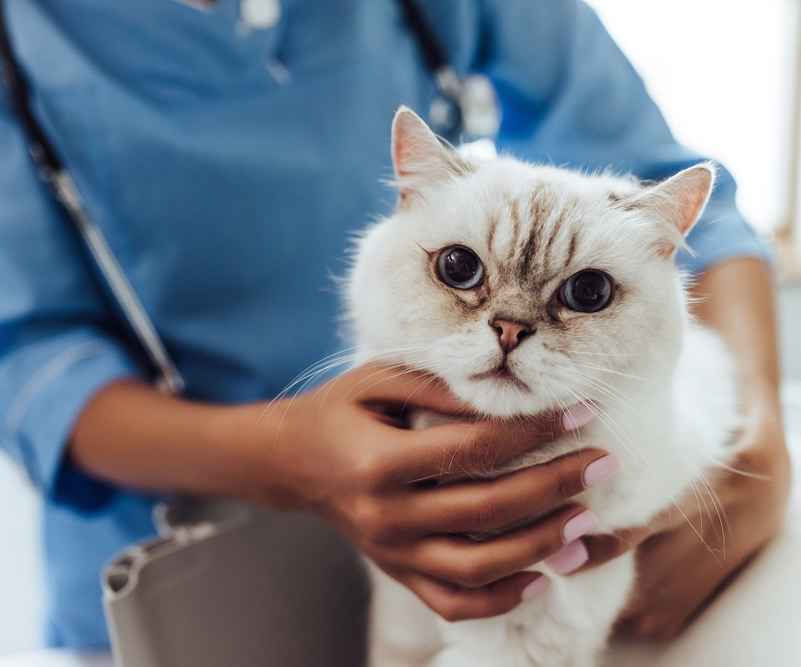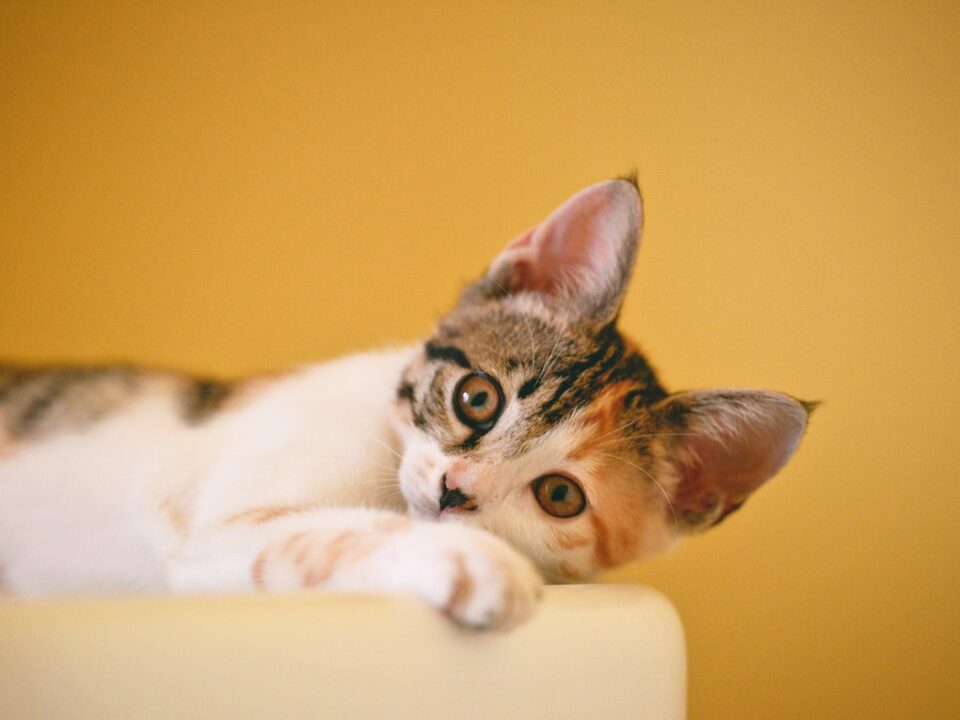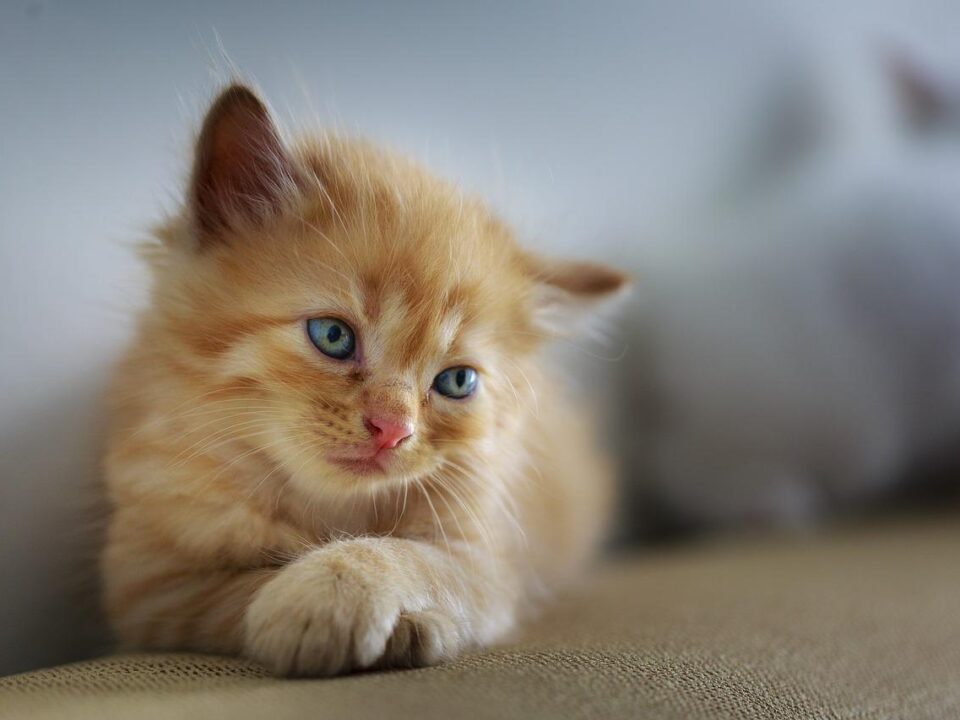
Dental Problems in Dogs – 10 Common Signs to Look For
October 24, 2022
How to Best Care for Your Senior Dog – Age, Diet & Health Tips
December 30, 2022Signs of Feline Immunodeficiency Virus

Does your cat roam outside? If so, you must know and be prepared for the potential risks of feline immunodeficiency virus. This knowledge will assist you in spotting anything unusual going on with your furry friend and help you understand when to visit the vet.
In addition to knowing the basics of cat care, all cat owners must be aware that their beloved cat is at risk of contracting a potentially deadly disease known as feline immunodeficiency virus (FIV), also known as the feline aids virus. Feline aids can make your cat more vulnerable to any infection, disease, or illness it may catch, making it a potentially deadly condition.
This page will provide the information you need about the feline immunodeficiency virus, including symptoms, diagnosis, treatment, and more. Let’s begin by defining what exactly Feline Immunodeficiency Virus is.
What is Feline Immunodeficiency Virus?
Feline Immunodeficiency Virus is a disease that attacks an infected cat’s immune system, similar to HIV in humans. The disease transfers through infected salvia, entering another cat’s body tissue. What makes FIV dangerous is the deterioration of the immune system, which allows secondary diseases to become more harmful and potentially fatal.
3 Stages a cat goes through when affected by the virus
1. The acute phase
This is the stage when the virus enters the body. It can take 1-3 months for these symptoms to show. The severity of these symptoms varies. Sometimes, your cat will be noticeably ill, and sometimes, the effects are so mild that owners don’t notice or assume it’s something minor.
2. The asymptomatic phase
After the initial phase, the virus will enter a stage where it remains symptomless. This can last months, even up to ten years or more. Unfortunately, it’s impossible to predict exactly how long the virus will remain dormant as it varies from cat to cat.
3. The progressive phase
This is when the cat’s immune function will diminish, and they’ll become vulnerable to any infection. The cat is now more vulnerable to infection, disease and viruses, and its body will struggle to combat any illness. They’re much more likely to have re-occurring and chronic infections of the eyes, skin, upper respiratory system, and urinary tract. Feline Leukemia Virus (FeLV) is a concern for a cat with a poor immune system.
While the severity of these infections will vary, there is a real risk that the cat’s immune system won’t be able to fight off a severe infection or virus, which can lead to death.
Common symptoms of cats infected with FIV
You may wonder whether you need to have your cat tested for FIV.
Some symptoms common in infected cats include:
- Anorexia, loss of appetite and/or weight loss.
- Lethargy
- Enlarged Lymph nodes
- Your cat has stopped grooming
- Diarrhoea/vomiting
- Inflammation of the gums or mouth (gingivitis and stomatitis)
- Fever
- Chronic Skin disease
- Neurological disease (in severe cases, FIV can infect the brain)
Most of these symptoms won’t be caused by the FIV virus itself but by another infection that has been allowed to flourish due to FIV’s effect on your cat’s immune system.
How does Feline Immunodeficiency Virus Spread?
The most common transmission is through bite wounds from an infected cat. For an infection to occur, the bite must be severe enough to leave a deep wound, allowing saliva to enter the body tissue. Bites of this severity tend to result from fighting among territorial cats, hence why outdoor cats are at much greater risk of developing FIV.
Casual, non-aggressive contact among cats, for example, playing, sharing a bowl of water, and grooming, don’t appear to spread FIV. Therefore, in households where the cats have a stable relationship with one another, the likelihood of FIV spreading is very low.
Male cats who haven’t been desexed and are allowed outside are the most likely demographic to catch FIV due to their territorial nature with other cats. Some research suggests that as many as 75% of all FIV-positive cats are male.
It’s also possible for a mother cat to pass FIV to her kittens through her milk. However, research indicates this is a sporadic way for the virus to transmit. Sexual transmission is also an unlikely means of catching FIV.
How to Test for Feline Immunodeficiency Virus
When a cat first contracts FIV, their bodies develop antibodies to fight the virus. To determine if your cat has FIV, blood tests are used to find these antibodies rather than strains of the virus. Secondary tests at a lab are often required to confirm a diagnosis. Infected cats often show other test abnormalities, such as low white blood cell counts.
A negative antibody test usually indicates the cat doesn’t have FIV. However, two possible scenarios exist where a cat with FIV may test negative. The first is when a cat is tested very soon after infection, as their body hasn’t had time to develop antibodies (usually takes about 2-6 months).
In sporadic cases, a cat in the late stages of feline immunodeficiency virus may also test negative as their immune system is so compromised it can no longer develop antibodies. Both scenarios are uncommon; a blood test is still the most reliable method to detect feline immunodeficiency virus.
How to Treat Feline Immunodeficiency Virus
Unfortunately, there is no cure for FIV, so once your cat has it, they have it for the rest of their life. However, there are treatment options that will help your feline friend live a long, happy life. Your vet knows your cat’s history and can offer advice and tailor treatment to suit each case.
Steps you’ll need to take will likely include desexing your cat, keeping them indoors, regular vet check-ups and possibly medications.
For uninfected cats, keeping up to date with your cat’s vaccines, desexing and not allowing them to roam the streets at night are some of the best preventative measures you can take. While FIV vaccination goes a long way to helping, it isn’t 100% effective, so we still highly recommend taking preventive measures to keep your cat from getting into fights.
What this disease means for your cat and your household
While Feline Immunodeficiency Virus shares many similarities with human Immunodeficiency Virus (HIV), it’s important to stress that FIV is a feline-specific disease. There is no evidence that FIV can be transmitted to humans.
If your cat is diagnosed with FIV, you must be more vigilant for any signs of sickness. Due to their compromised immune system, you can’t take a ‘wait and see’ approach to any symptoms of illness. Any illness your FIV-positive cat has needs to be treated as soon as possible to avoid any severe side effects. Your vet will help you create a plan to ensure your pet can still live their best life.
A cat with FIV must be kept inside to minimise exposure to other diseases and avoid spreading the disease to other cats. Treatments can only be given if you have your cat checked by a professional, so book an appointment with your trusted veterinarian if you notice any symptoms.
Additional Resources for Feline Immunodeficiency Virus
Here are some helpful links for both finding out more about Feline Immunodeficiency Virus and general cat care:
- Cornell Feline Health Centre’s page on FIV
- Cat Doctor’s Guide to FIV
- Cat Vaccinations
- Beginner Guide to Cat Care
Are you worried your furry friend may have FIV? Whether your cat needs a health check, urgent care or any other assistance, Rossmore Vet Hospital is here to help with your needs. We have an in-house laboratory to handle diagnostic tests and can organise specialist referrals. Let us help you keep your pet in the best of health by getting in touch today!



